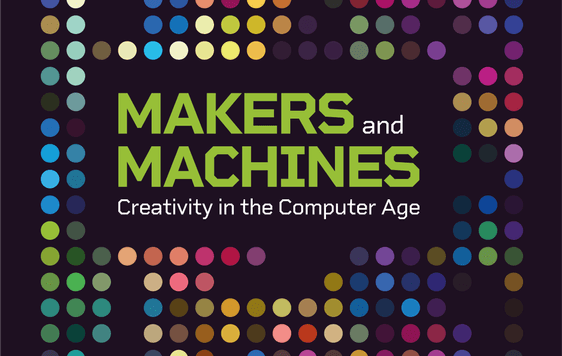News Story
A Woman Named Steve
The story of a woman named Steve from the West Midlands shows just how long local women have been breaking down both technological and gender barriers.
One of the challenges that women and girls face when considering a career in a STEM field (Science, Technology, Engineering, and Mathematics) is that there are persistent cultural associations of certain types of job and skill with masculinity. This can cause girls’ talents to be overlooked and underdeveloped, discourage them from applying for training and jobs, and make workplaces hostile and unsupportive for women. Although huge progress is being made, in Britain as in many other places this has long been the case for computer science. I remember my Mom telling me about the fury she felt as a teenager in 1970s Birmingham, upon being told that she wasn’t allowed to join her school’s brand new Computer Club because it was “only for boys”. A great irony is that, at that very time, a Birmingham-raised woman was fighting the sexism of the British computer industry and in the process becoming one of the country’s most successful and pioneering software developers.
Dame Stephanie (“Steve”) Shirley – then still known by her birth name, Vera Buchthal – arrived in the West Midlands in 1939 as an unaccompanied 5-year-old refugee from Nazi Austria. First raised by foster parents in Sutton Coldfield, she later attended Oswestry Girls’ High School and developed a talent for mathematics; the teaching for this subject was limited there so a special arrangement was made for her to attend classes at the local boys’ school.
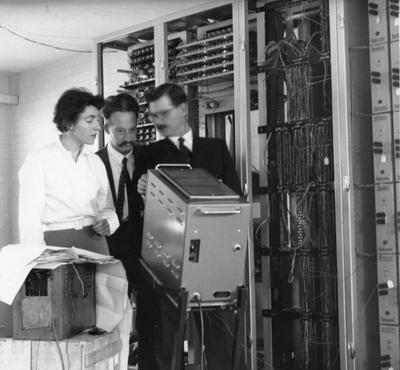
Shirley’s first job was as a researcher at Dollis Hill, the Post Office Research Station, the only woman in the team working to develop ERNIE, a computer designed to generate unique Premium Bond numbers. The Post Office was at the forefront of the emerging computer industry; whilst there, she worked for Tommy Flowers, who had designed Colossus, the world’s first programmable electronic computer, for codebreakers at Bletchley Park during the Second World War. Although Shirley was a rare female researcher at Dollis Hill, it was not uncommon for women to work as programmers in the early computer industry. If you’ve seen the film Hidden Figures you’ll know that even the term ‘computer’ is taken from the job title of predominately female mathematical staff in technical organisations who carried out calculations called computations. In the 1950s, programming was still often seen as relatively low-status work in comparison to the design of computer hardware and therefore, like the previous computational work, a ‘suitable’ role for women employees.
The historian Mar Hicks has comprehensively researched the role of women in Britain’s computer industry. Their brilliant 2018 book Programmed Inequality: How Britain Discarded Women Technologists and Lost Its Edge in Computing describes how, as computer science acquired more economic and social importance, programming began to be perceived as a more highly-skilled, managerial role and––despite their wealth of skill and experience––vast numbers of women were actively pushed out of the profession (sometimes even after having being expected to train up the men who had been hired to replace them).
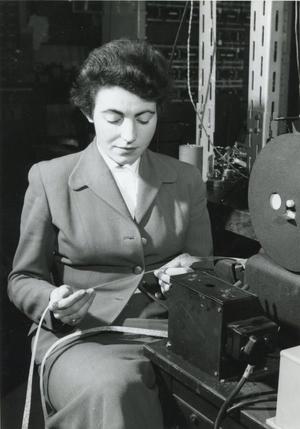
Shirley also endured significant sexism in the workplace––from being overlooked for promotion and training to outright harassment. Sensing no other way to make the career progress she wanted after getting married in 1959, she used a starting capital of just £6 to found her own software development company, Freelance Programmers. Her business model sought to tap into a wasted pool of talent: the huge number of professionally qualified female programmers who faced barriers to returning to work after getting married or having children.
The company almost exclusively hired women (only three of the first 300 employees were men) who wrote innovative software while on flexible home working and job share contracts, which were unheard of at the time. The whole way of working was designed to make it easy for women to return to work after having children: they could choose their own hours, work from home and even get help with childcare whilst attending client meetings. At this time, it had also been quite radical to sell software independently of the computers themselves. Shirley wrote in her memoir that “In a sense, this was creative work… looking at what companies did and what they wanted and imagining software solutions that had never been dreamed of before.” Even so, the ever-present sexism in the industry forced her to adapt: “I changed my name from Stephanie to Steve in my business development letters,” she told us, “so as to get through the door and be shaking hands before anyone realised that ‘he’ was a ‘she’.”
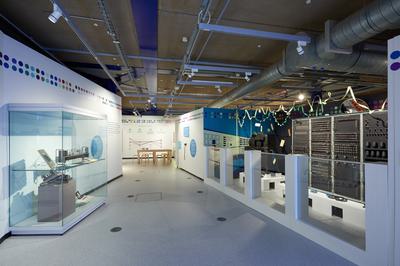
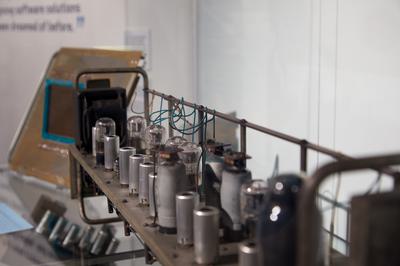
Freelance Programmers was enormously successful, with its coders working on everything from the Concorde black box to NATO’s software standards. Shirley was appointed OBE in 1980 for services to Industry, and in 1989 became the first female President of the British Computer Society. In 2000, ‘Steve’ had become Dame Stephanie, appointed for services to information technology, and in 2017 she was made a Member of the Order of the Companions of Honour for services to the IT industry and philanthropy, having donated most of her wealth from the sale of the company to charities devoted to supporting IT workers and research into autism.
You can read more about Steve’s life and work on her website (or by picking up a copy of her autobiography in from our online shop). Although for her, “for years I was the first woman this, the only woman that,” Steve’s story is a tremendous inspiration to today’s girls and young women who are interested in a career in computer science. It shows that, not only is this work that women can be good at, it’s work that intelligent, visionary women fought to be a part of right from the very beginnings of the industry, and they made enormous contributions to the technology despite the barriers that were placed in their way. What’s more, Steve Shirley is far from the only local woman to have made a major impact on the British computer industry. We hope to share more stories of other women here soon, or, if you can’t wait, you can visit Thinktank’s current special exhibition Makers and Machines: creativity in the computer age to encounter more pioneering Birmingham women and the computers they worked on.
By Felicity McWilliams, Curator of Science and Industry at Birmingham Museums Trust. With thanks to Dame Stephanie Shirley and Lynn Hart for their assistance with the research for this article and the Makers and Machines exhibition.
Follow Dame Stephanie Shirley on Instagram @damestephanie_ and Twitter @DameStephanie_
International Day of Women and Girls in Science
For almost a decade, 11 February has been promoted by UNESCO and the United Nations the International Day of Women and Girls in Science. The day is designed to act as a focus on work towards gender equality in STEM (Science, Technology, Engineering and Mathematics).
The United Nations has gathered statistics which show that gender inequality is a serious problem in technological fields: women are still significantly outnumbered by men, receive on average smaller research grants, are more likely to be passed over for promotion, and have shorter and less well paid careers. They know that this is an economic as well as an ethical problem: ‘there is a shortage of skills in most of the technological fields driving the Fourth Industrial Revolution’. The cultural, economic and educational barriers which make it harder for women to enter and thrive in STEM fields are stifling and wasting a vast pool of talent and potential which is desperately needed to help solve the world’s current and future challenges.
